
 Flash News
Flash News
Requesting conditional release, Ervin Salianji arrives at the Fier Court
Fire in Lura, flames endanger the National Park
International drug search: 36-year-old arrested in Durrës (NAME)
Veliaj's appeal to be heard today in the High Court
Today's hearing at the Fier Court, Salianji requests conditional release
The prosecution bans publications in the media, Reporters Without Borders: Journalists cannot be threatened with prison

Reporters Without Borders' announcement on the order of the Prosecutor's Office of Tirana for the media:
Albanian prosecutors have banned the media from covering matters of public interest, including threats to state institutions and a case of organized crime. Reporters Without Borders (RSF) urges the authorities to avoid disproportionate measures and condemns the fact that journalists have been threatened with imprisonment for violating these prohibitions.
State security and the confidentiality of judicial investigations are legitimate reasons for limiting press freedom, but the authorities must take proportionate measures not to arbitrarily curb this fundamental right. No journalist should be threatened with prison sentences if they cover topics of public interest such as threats to state institutions and organized crime in accordance with media ethics. We call on the prosecutors and courts of Albania to take into account the right to information.
Pavol Szalai
Head of the RSF office for the European Union and the Balkans
On September 19, Tirana's prosecutor's office issued an order barring Albanian media from publishing any information stemming from the leak of "sensitive" government documents following a cyber attack possibly carried out by Iranian hackers. They include information about a suspected plan to assassinate Kosovar Prime Minister Albin Kurti and suspicions of a possible terrorist attack on the Albanian embassy in Greece.
The Prosecutor's Office of Tirana told RSF that the ban aims to protect personal data, classified state security information and the confidentiality of judicial investigations and "does not aim to hinder media activity". However, the prosecutor's office did not say how long the ban will remain in effect. Moreover, the ban does not distinguish between documents of different types, while journalists who violate it will be exposed to criminal prosecution.
Another recent publication ban was issued by the special anti-corruption prosecution on June 14 against Elton Qyno, an Ora Nea journalist investigating organized crime in Albania, after he reported in several articles that his sources and the official investigation pointed out inclusion. of high officials and politicians in the affairs of suspected gangster Nurdin Dumani.
When contacted by RSF about the detention, the special prosecutor said: "The purpose of this order is not to imprison the journalist, but to preserve investigative secrecy as well as to prevent serious events that could be caused by the publication of these statements [given by associates of justice in criminal proceedings] and reprisals by rival groups.” In response to this order prohibiting him from covering the Dumani case until the completion of the criminal investigation, Qyno has denounced the order in the special court of Albania. Penalties for journalists who violate the ban are extremely high. According to the penal code of Albania, they can be sentenced up to six years in prison.
Albania is ranked 103 out of 180 countries in RSF's 2022 World Press Freedom Index, the lowest ranking in the Western Balkans.
Latest news


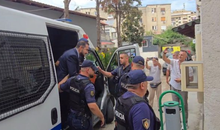
Requesting conditional release, Ervin Salianji arrives at the Fier Court
2025-07-08 11:16:36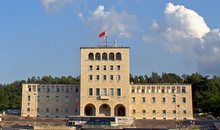
The first phase of university applications begins today
2025-07-08 11:10:52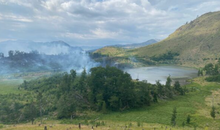
Fire in Lura, flames endanger the National Park
2025-07-08 10:53:43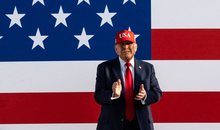
Trump warns of 35% tariffs on Serbia and 30% on Bosnia and Herzegovina
2025-07-08 10:37:32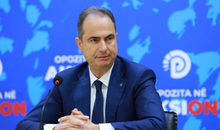
Thethi rooster and the dung cock
2025-07-08 10:24:01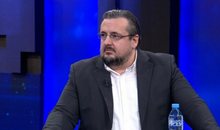
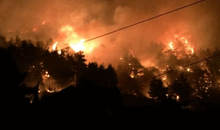
Fire in Dukat endangers Llogara National Park
2025-07-08 10:01:39
International drug search: 36-year-old arrested in Durrës (NAME)
2025-07-08 09:50:48
Thethi, tourists "criticize" modern trend
2025-07-08 09:39:54
Fire on Mount Dukat still active, Llogara National Park at risk
2025-07-08 09:28:12
Veliaj's appeal to be heard today in the High Court
2025-07-08 09:16:02
"Bad sign for democracy"/ Parliament neglects reporting by institutions
2025-07-08 09:04:56
Today's hearing at the Fier Court, Salianji requests conditional release
2025-07-08 08:56:39
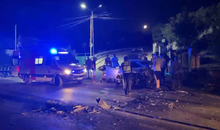

Horoscope, what do the stars have in store for you today?
2025-07-08 08:16:19
Weather forecast/ How temperatures will vary throughout the day
2025-07-08 08:02:37
Morning Post/ In 2 lines: What mattered yesterday in Albania
2025-07-08 07:48:30





Marrëdhënia që s’është romancë, por s’është as thjesht kolegiale
2025-07-07 21:39:13
Citizen is asked to pay 2.5 million for a non-existent meter
2025-07-07 21:28:03

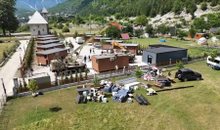


What is the ideal air conditioner temperature in summer?
2025-07-07 20:53:46
GJKKO left him in prison, Meta appeals the decision
2025-07-07 20:38:05
Where is Ronaldo after missing Diogo Jota's funeral?
2025-07-07 20:38:04

Messages from the author who killed Ilaria Sulla in Rome are revealed
2025-07-07 20:20:12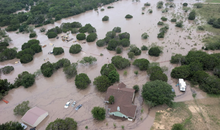
At least 91 dead in Texas floods
2025-07-07 20:12:02
Elbasan, choked by smoke, scorched by conscience
2025-07-07 19:48:16

Swarm of bees attacks citizens in France, 24 people end up in hospital
2025-07-07 19:32:03
Dementia/Hearing loss may be a warning sign
2025-07-07 19:13:06
The decision for Malltez, Gjokutaj: Boomerang for SPAK and the Court
2025-07-07 19:01:08

Former Supreme Court member acquitted of asset concealment
2025-07-07 18:36:40

WIIW expert in Politiko: Brain drain is steadily weakening the Albanian economy
2025-07-07 18:11:41
Heart health is at risk from extreme heat, here's what you should be careful of
2025-07-07 18:10:18
Today Gert Bogdani would celebrate, Edlira Çepani's touching dedication
2025-07-07 17:40:45






The striker severely accuses the Fenerbahce club: They tried to drug me
2025-07-07 16:21:03
A decomposed body is found in Kolonjë, initial suspicions
2025-07-07 16:03:31
Accident in Saranda, car hits motorcycle, one injured
2025-07-07 15:58:56

The most fertile age for men and women
2025-07-07 15:40:52
Locals, Rama candidate in 5 municipalities
2025-07-07 15:32:22
Blushi: Meta's criminal kidnapping, incomparable even to Navalny's in Russia
2025-07-07 15:20:34
Meet the iPhone 17 Pro, the main innovations in design and technology
2025-07-07 15:09:09
Why the release of Abi Malltez does not free him; much less Albania
2025-07-07 15:00:12
‘Lidhjet klienteliste’ të mjekëve mbushin recetat e pacientëve
2025-07-07 14:57:33
Poland imposes border controls with Germany and Lithuania
2025-07-07 14:48:15

Caught transporting firearms from Kosovo to Albania, young man arrested (NAME)
2025-07-07 14:37:47
Theo Hernandez flies to Saudi Arabia for medical check-ups
2025-07-07 14:26:47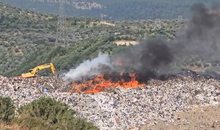

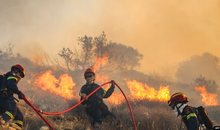
Scorching heat, Greece orders mandatory work holidays
2025-07-07 13:54:25




Trump expects Netanyahu to discuss Gaza ceasefire
2025-07-07 12:54:27
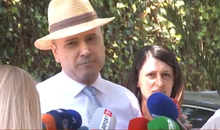
GJKKO releases Jamarbër Malltezi from house arrest
2025-07-07 12:35:02
Tourism among contrasts
2025-07-07 12:31:01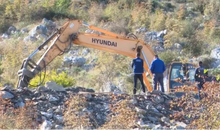
IKMT action in Theth, starts demolition of unauthorized constructions
2025-07-07 12:24:18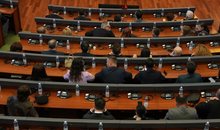
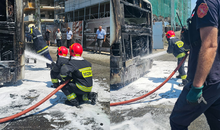
The Tirana-Kamëz line is destroyed by urban fire
2025-07-07 12:00:24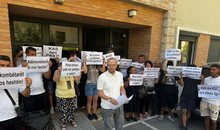




Poor direction!
2025-07-07 11:16:01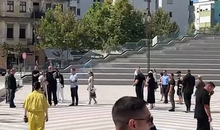


Rama to gather the country's mayors on July 9
2025-07-07 10:43:31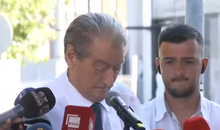
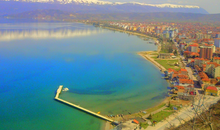
Ohrid Natural Park on the way to UNESCO's "black list"
2025-07-07 10:25:58

Registrations for the new school year begin in e-Albania
2025-07-07 09:59:09
KAS decides the "fate" of the elections in four districts of the country today
2025-07-07 09:50:51
Rama does not give up on Vlora, visits the municipality again
2025-07-07 09:39:11

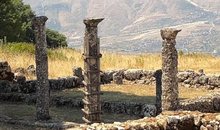
Fires in Gjirokastra, flames very close to cultural monuments
2025-07-07 09:12:49
